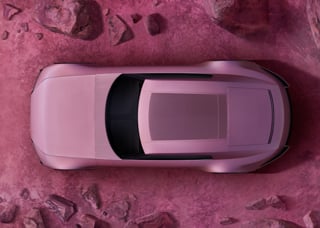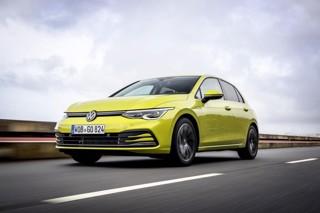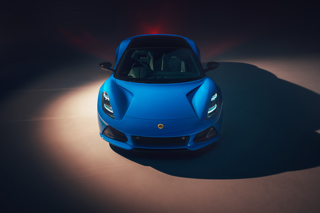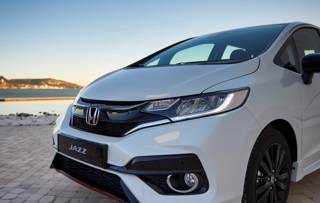Selling caps, jackets and mugs with a carmaker's name on has often caused problems for dealers. While manufacturers view it as crucial to their “brand extension philosophy” most retailers see it as a pain in the backside, a chore that detracts from the more pressing task of selling and servicing cars.
But selling car merchandise can increase dealers' profits. It gives them the opportunity to increase showroom traffic and turnover and attract a new kind of customer – the aspirational buyer. This prospect might not be able to afford the car just yet, but they desperately want to become part of the club.
Nadine La-Vigars is a 22-year-old trainee environmental health officer living in Birmingham. But she's also an aspiring Mini driver saving up for her first car. She doesn't just want a new Mini Cooper S in Chili Red: “I want the radio control Mini. I want the Mini watch, the Mini skateboard and the hi-tech Mini MP3 music player.”
And when she gets her Mini, she wants the specially designed luggage that fits in the car's small but perfectly formed boot.
For Trevor Houghton-Berry, Mini UK general manager, the aim is to make owning the car as much fun as buying one. It's a logical idea. “Extending the Mini brand allows us to create a loyal community of owners and enthusiasts who will return to the same forecourts time and again,” he says.
Snagging the loyal customer is the Holy Grail for automotive retailers. Luxury manufacturers are already tapping this rich vein of consumer interest, following the lead established by lifestyle motorcycle marques like Harley-Davidson and Triumph. Aston Martin's latest glossy catalogue includes a £145 key ring, £2500 night vision goggles and a £4500 carbon-fibre briefcase. But Tim Watson, director of public affairs for Aston Martin, warns that some manufacturers are in danger of focusing too much on the merchandise and not enough on the product.
“Our expertise is in making cars not running department stores,” he says.
The market peaks at Christmas time as buyers search for innovative gifts. Last year, Porsche struck gold with its £140 aluminum sleigh. Now, the German carmaker is training its 32 UK dealers to promote its latest range of merchandise ready for Christmas. For Porsche, merchandising is an integral part of its business. But the firm is aware of potential dangers. “We don't sell as much merchandise as we could, but we don't want to get to the stage where the importance of the key rings overtakes the importance of the cars,” one Porsche insider said, his mind most likely on the premium prices the carmaker is able to charge for its accessories.
In the world of car merchandising one firm has got it spot on. Go to any Formula One Grand Prix meeting and take a look around. There's a sea of red hats, red T-shirts and jackets and flags embossed with the famous red and yellow badge. And it all has to come from somewhere.
Customers buy Ferrari goods through dealers. They either nominate a preferred dealer from the exclusive owner's website when shopping online, or get retailers to order products on their behalf. Either way there's money to be made. Dealers can also order items for in-store displays, which gives them the chance to make even more cash.
But exclusive means exclusive and there's only a couple of Ferrari-branded gymnasiums for sale used by the five times F1 world champion Michael Schumacher. And any customer who wants a used F1 car will be disappointed.
While Ferrari's success is founded on the achievements of its motorsport division, and a recognition of the benefits of cashing in on mechandising, some manufacturers are losing out. The growing popularity of the World Rally Championship, for example, has led to increasing customer demand for team rally jackets. Cue the counterfeiters who cost manufacturers and dealers hundreds of thousands of pounds by flooding the market with fake goods. But of course, it's largely their own fault for allowing counterfeiters a foothold.
Still not convinced? Then take a look at Manchester United, the undisputed king of merchandising and one of the few clubs to turn success on the pitch into money in the bank. In the six months to January 31 this year, the club chalked up pre-tax profits of £30.9m, up 79 per cent year-on-year.
It's the biggest turnover of any English soccer club and merchandising is the secret. While Manchester United's core business is football, it makes more money from selling replica shirts with the names Beckham and Giggs on them than it does from cash paid by spectators attending matches at Old Trafford.
The success of merchandising in the last decade has led carmakers to follow the Manchester United model and open shops at some of the busiest shopping destinations across the globe, including London, Paris and New York. Critics say the shops take traffic away from the showrooms while supporters argue the outlets raise the product profile and bring in much-needed revenue.
Mercedes-Benz opened its first UK shop at the Bluewater centre in Kent. Here customers can buy a model of Juan Manual Fangio's Mercedes-Benz W196 after they've picked up their new jeans from Gap a few doors down.
But as well as selling gifts, the retail outlet can perform the key functions of a dealer: customers can test-drive and order new cars from these; prospects can also arrange finance via an in-store video link, bypassing dealers.
Land Rover's 'Experience Centre' at Bluewater is proving so popular it has now added an Adventure Zone off-road track covering seven acres of rolling Kent countryside. In the last three years, Land Rover has sold more than 40,000 of its £135 fleeces. Global turnover for the range is about £9.7m a year with the UK accounting for about 30 per cent. The range last year grew 55 per cent.
Merchandising maximises dealer profits and attracts a new kind of customer, says Adrian McMullan, of Nottingham Business School. “A customer that feels strong enough about a brand to spend money on merchandise clearly aspires to owning the car, contact information that is invaluable,” he says.
But if retailers ignore this opportunity, the customer could bypass them to source merchandise and perhaps even cars online.


















Login to comment
Comments
No comments have been made yet.